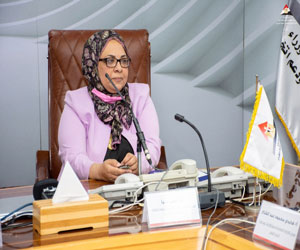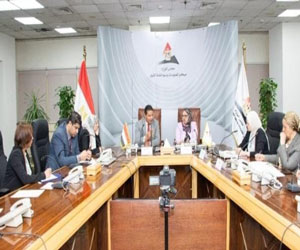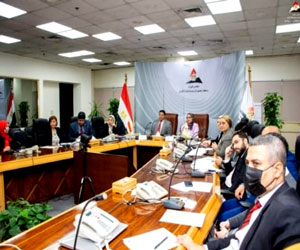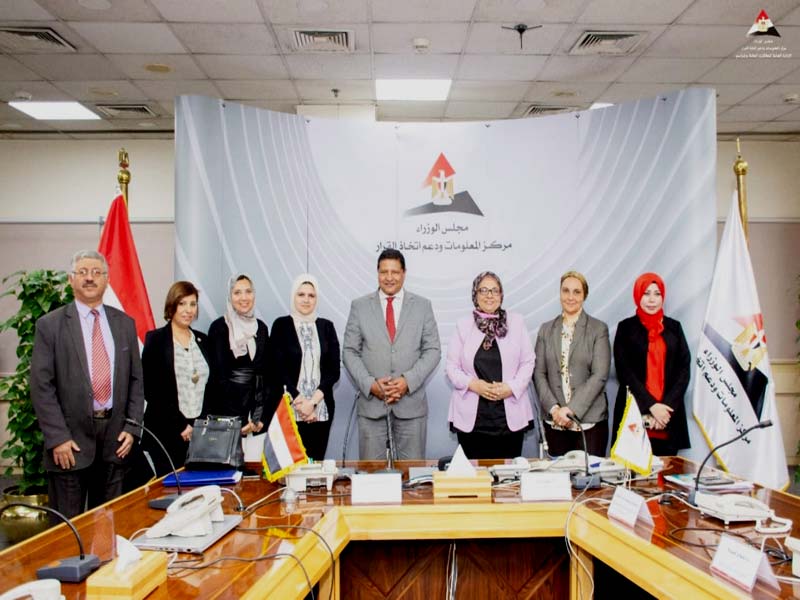Climate Change and Digital Transformation seminar
Within the framework of cooperation with civil society and national initiatives that have an effective role in climate awareness and universities because of their remote and rehabilitating scientific thought in training to confront climate changes, and in the framework of Egypt’s organization of the 27th Conference of the Parties to Climate Change next November in Sharm El Sheikh COP27., and in cooperation with The Faculty of Graduate Studies and Environmental Research at Ain Shams University, the academic partner of the Climate Ambassadors Program, organized a seminar on “Climate Changes and Digital Transformation” by the Information and Decision Support Center in the Council of Ministers, under the auspices of Dr. Osama El-Gohary, in cooperation with the Million Youth Volunteer Initiative for Climate Adaptation (Climate Ambassadors).
 |
 |
 |
||
Dr. Noha Samir Donia, Dean of the Faculty of Environmental Studies and Research at Ain Shams University presented a lecture at the seminar.
Prof.Dr. Noha. in her speech during the events, discussed the concept of climate change and the impact of climate change on individuals and society. She also touched on international agreements on the issue of climate change and reviewed the efforts made by the Egyptian state in this regard.
She reviewed the efforts of Ain Shams University under the leadership of His Excellency the President of the University, Prof. Dr. Mahmoud El-Metini in the field of climate change to be a green university and its plan to reduce the university's carbon footprint.
She reviewed the efforts to establish the Green Transformation Unit as the first unit in Egyptian universities and the mobile application in Arabic language for the carbon footprint that the college developed to calculate the carbon footprint of the individual.
Dr. Mostafa El-Sherbiny, Ambassador of the European Climate Charter, gave a lecture at the seminar, where he shed light on the relationship of modern technology to high rates of greenhouse gases - and how to transform this and benefit from it in order to reduce these emissions in the future.
The seminar recommended making a cooperation protocol between the college and the information center to support decision-making in activating the program and analyzing data on individuals' carbon footprint.
At the conclusion of the seminar, the events recommended that government institutions and bodies should set an example in implementing best energy management practices in information technology and its relationship to the release of greenhouse gases, such as integrating data centers into more efficiently managed facilities, purchasing renewable energy, and the need for networks and servers to work with renewable energy. That actors consider a whole systems approach to understanding the energy consumption and carbon emissions of ICTs, drawing on data and experience.
She stressed the need to support the development and widespread adoption of emerging technologies that can improve systems, facilitate energy efficiency, and provide export opportunities for green digital technology, noting that ICTs are not bound by national borders - Egypt must continue to work with the International Energy Agency and the G-20 to push Global debate and action on the issue of energy consumption in ICTs.
The recommendations of the symposium indicated the need to enhance technical expertise in the information technology sector and its relationship to climate, as this field is complex, while studying its future relationship with the African Union, the Arab League and the world of telecommunications, and studying holding a series of seminars to educate employees about climate changes.
.svg)




